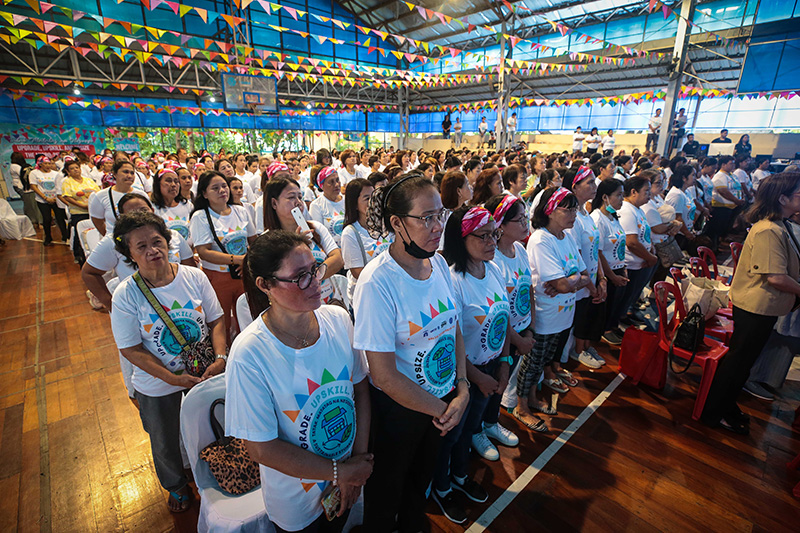Several micro-entrepreneurs of the retail industry attended a skills training late July to learn about sustainable business practices, trade innovations and financial literacy.
The “Tatak Matatag na Negosyo: Upgrade, Upskill, and Upsize the Micro-Retail Sector” is an event launched on July 28 together by the Department of Trade and Industry (DTI), Technical Education And Skills Development Authority (TESDA) and Coca-Cola Philippines to provide micro, small and medium enterprises (MSMEs) with adequate support in establishing their own successful retail stories.
“Micro retailers are the lifeblood of our communities. They are the corner sari-sari stores, the small market vendors, and the neighborhood food stalls that cater to our everyday needs,” DTI Undersecretary Bles Lantayona said in a release.
According to R.A. 9501 or the Magna Carta for Small Enterprises, the state is responsible for the promotion and strengthening of MSMEs. It, alongside non-government organizations and the private sector, shall recognize specific needs of small enterprises by intensifying training programs, providing access to fund pools and incentives, removing stringent collateral requirements and more.
Support for MSMEs
Meanwhile, the conference proved to be an invaluable platform for MSME owners, offering them a wealth of opportunities to network, exchange ideas, and forge potential partnerships with government organizations, private sector companies and microfinancing institutions.
Since 2011, Coca-Cola Philippines has helped over 270,000 micro-entrepreneurs through its Sari-sari Store Training and Access to Resources (STAR) Program. The initiative created economic opportunities for the families and communities of the program’s stakeholders.
“MSMEs are the backbone of the Philippine economy,” Coca-Cola Philippines president Tony del Rosario said.
Just as micro-entrepreneurs benefit from the joint initiatives of the government and private sector, big businesses like Coca-Cola Philippines also receive something in return.
Rosario said micro retailers allow their products to become more accessible to consumers on a daily basis given the close proximity of sari-sari stores and cooperatives to households in the country.
Unilever Philippines has a similar goal as it aims to make “a more socially inclusive world” through its flagship program Kabisig Summit, which supports sari-sari store owners across the country to become more resilient.
On the financial side of things, GCash has been working with MSMEs to empower their financial literacy and help them navigate the digital economy through fintech solutions.
When small enterprises apply to the mobile wallet app as a business, the firm provides consumers with more means to transact. An example of this is their Scan-To-Pay feature that enables QR code payments offline. Other GCash features that MSMEs can opt for are the GLoan and GInsure.
As of the latest report of the Philippine Statistics Authority in 2021, 99.58% of all businesses in the country are MSMEs. This generated a total of 5.46 million jobs, comprising 65.67% of the country’s total employment in that year.

